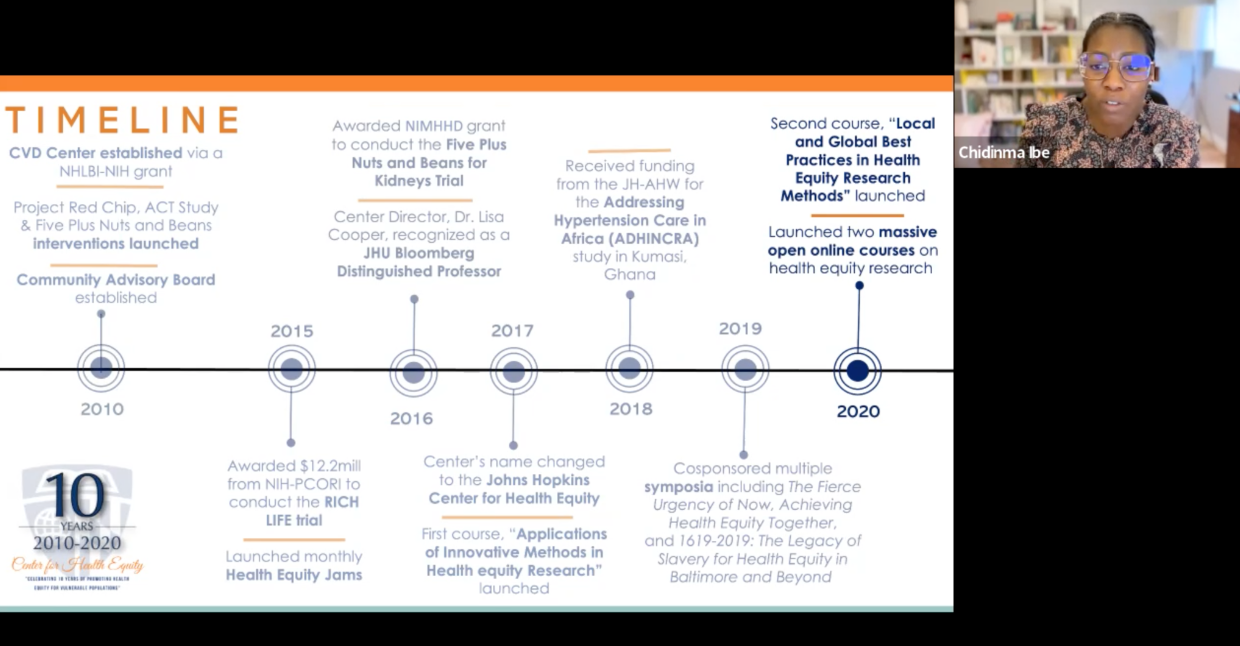Moving Beyond Curiosity and Acknowledging the Consequences of Choice
This article is a part of our CTSC Event Recap series.
How do you convince researchers, clinicians, caregivers, staff, and health equity champions from four local healthcare institutions, community organizations, the NIH, City of Cleveland, Mt. Sinai Foundation, CTSA Program Hub medical research institutions, and 11 local and national health disparities or health equity experts to be a part of an eight-week book discussion? Make it a part of a four-part, interdisciplinary health equity challenge series and select a text grounded in vulnerability, lived experience, and evidence-based practice.
Participants were charged with reading Dr. Lisa Cooper’s Why Are Health Disparities Everyone’s Problem? and completing one section per week of a virtual workbook curated by the CTSC. Parts of a diversity, equity, inclusion, and accessibility (DEIA) journey can trigger emotion and self-reflection that individuals might not be ready, willing, or able to share in a group, so although sessions did not involve the workbook, weekly lectures and discussion challenged attendees to dig deep, ask questions, and continue heightening their awareness about the pervasiveness of health disparities–locally and globally.
In response to a question regarding community engagement and compensation, Dr. Chidinma Ibe, Assistant Professor of Medicine and Director for Stakeholder Engagement at the Johns Hopkins Center for Health Equity, explained that, “We need to be honest about the reality, and frankly, the sad reality is, that as long as the funding mechanism favors academic institutions, there’s always going to be a disparity in terms of equitable compensation for community members engaged in research.” This reality illustrates a growth opportunity for the research community to be advocates. Dr. Ibe’s team has circumvented this reality by including community members as co-investigators–elevating lived experiences and their importance in research.
Another presenter, Dr. Adam Perzynski, Associate Professor, Departments of Medicine and Sociology, Director, Patient-Centered Media Lab, Center for Health Care Research and Policy at MetroHealth Medical Center, delivered a presentation about developing solutions to health disparities and emphasized, “It was amazing to hear the questions from this thoughtful group.”
If you missed this challenge, the book is still available for reading and application at your urgency. The Case Comprehensive Cancer Center will discuss the book during their 7th Annual Cancer Disparities Symposium: Equity in Action: Intercepting Cancer Disparities Through Research and Community Initiatives from March 2-3, 2023. Registration is open now and closes on March 2, 2023.
Watch raw footage of each meeting on our YouTube channel.



